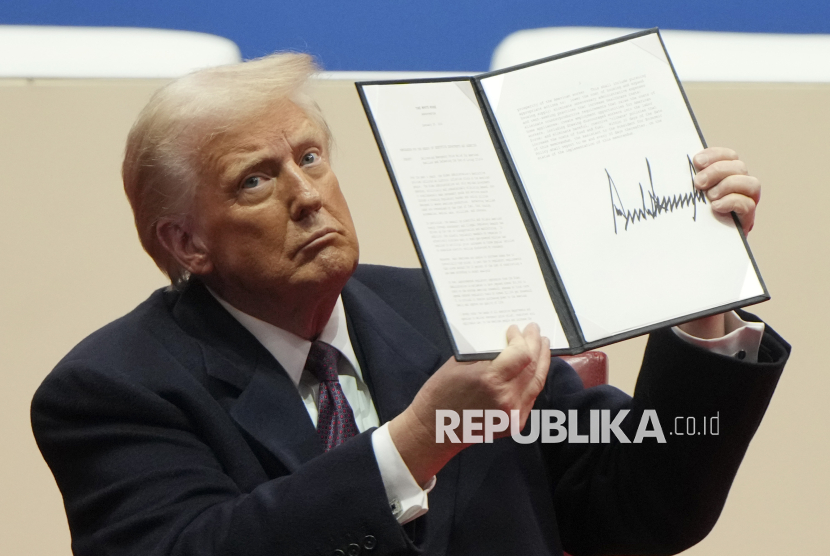REPUBLIKA.CO.ID, JAKARTA -- Executive Director of the Center of Reform on Economics (CORE) Indonesia Mohammad Faisal responded to the news that U.S. President Donald Trump will impose new import tariffs on many countries around the world. The White House plans to announce the details of the policy today, Wednesday (2/4/2025).
Faisal said Trump's policy was more targeted at other countries. He exemplified such countries as China, Mexico, Canada, and Vietnam. “This means that Indonesia is not the main target,” the CORE researcher told Republika on Wednesday (2/4/2025).
The above countries, according to Faisal, are Indonesia's competitors in the context of selling products to the US Market. So, the impact, he continued, was not just about competition in the quality of products marketed in Uncle Sam's land, but also in price. In this respect, Trump's policy is potentially good for Indonesia.
“In fact, this is an opportunity for Indonesia, which means that in terms of price our competitiveness falls compared to similar products produced by the US, but with other countries, we become stronger, if those countries are subject to high tariffs.”
The plan, he said, would have the U.S. impose high import tariffs on countries considered to be the biggest contributors to Uncle Sam's deficit. Faisal saw many Indonesian products bearing a resemblance to Vietnam, to be exported to the US.
So if it is established later, it is likely that we have (better) price competitiveness for products similar to Vietnam and China. So it's more improved,” he said.
That means the market in the U.S. for Indonesian products could be larger, compared to other countries that are subject to high import tariffs. Indonesia exports a number of commodities to the US. One of the largest are textiles, textile products, and shoe products, footwear.
So will Indonesia's overall market share in the US for some export commodities continue to decrease? According to Faisal it depends how big the price margin is. Labor wages in Uncle Sam's land are quite high. In labor-intensive industries, products produced by domestic industries, are sold higher, compared to products from supplier countries such as China, Vietnam, Indonesia, Bangladesh.
“So even if they impose (new) tariffs that make imported products more expensive, the competition is still quite strong compared to similar products made in the United States,” Faisal said.
He explained that the policy of raising import tariffs, in simple language, made products from outside, entering the US Market more expensive. More specifically for goods that could also be produced by Uncle Sam's domestic industry.


